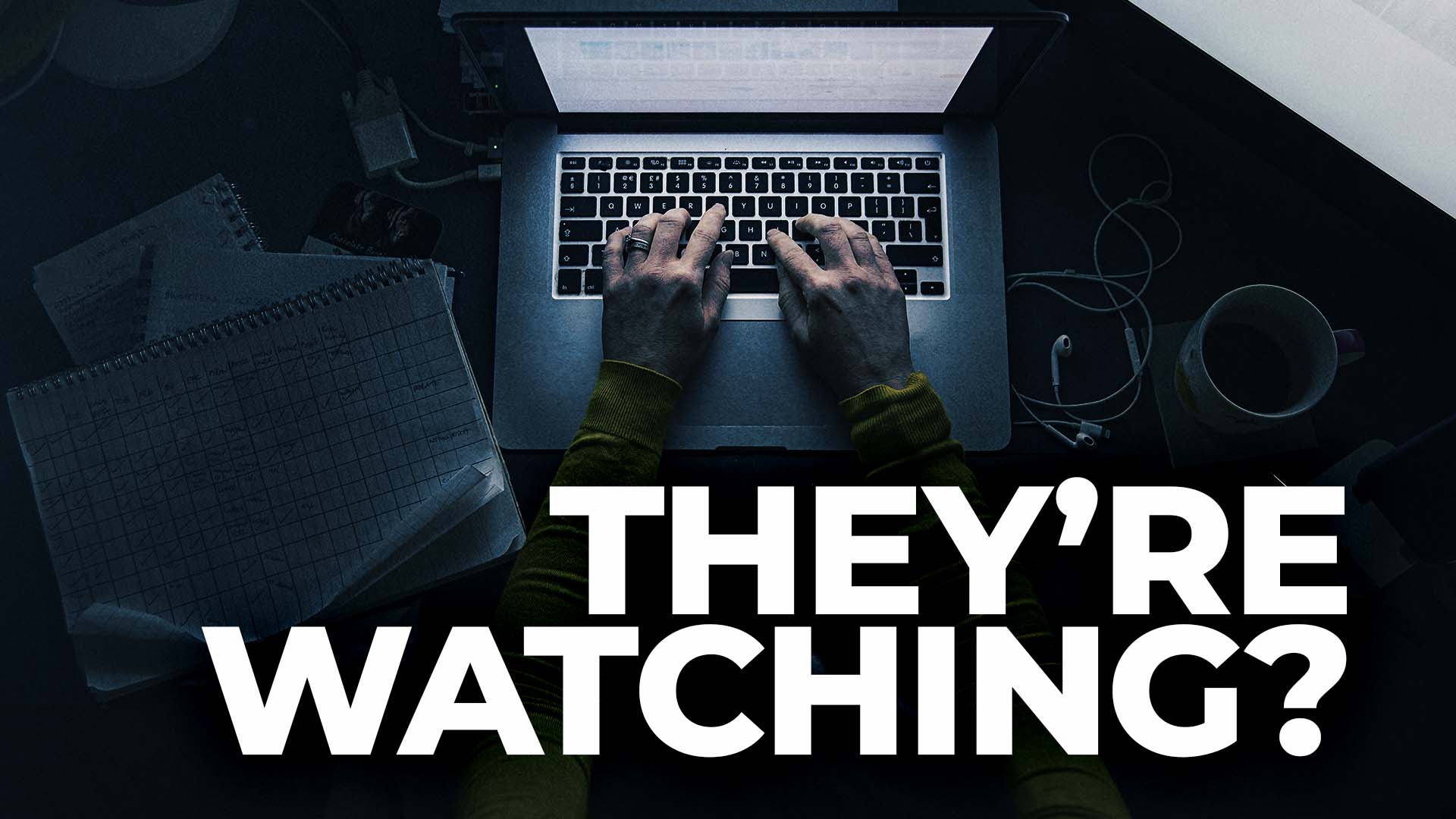
JIMMIE JOHNSON: WORKING FROM HOME HAS BECOME COMMONPLACE AND WITH THAT NEW REALITY, COMES A NEW CHALLENGE FOR COMPANIES MONITORING REMOTE EMPLOYEES.
LIKE YOU – WORKING IN THE PRIVACY OF YOUR HOME.
TO WHAT EXTENT CAN EMPLOYERS MONITOR YOU?
AND, DO THEY HAVE TO LET YOU KNOW?
LET’S GET THIS STRAIGHT.
IN TODAY’S JOB MARKET EMPLOYEES ARE CALLING IT QUITS FROM OFFICE HOURS AND CUBICLES IN EXCHANGE FOR HOME OFFICES AND MORE FLEXIBILITY.
BUT IS REMOTE WORK REALLY A BETTER TRADE-OFF?
ESPECIALLY IF THE BOSS IS WATCHING YOUR EVERY MOVE.
THAT’S FOR YOU TO DETERMINE.
FIRST, LET’S LOOK AT A FEW WAYS SOME COMPANIES ARE MONITORING EMPLOYEES:
THERE IS CLOUD-BASED TRACKING SOFTWARE.
WHEN INSTALLED ON YOUR WORK PHONE, TABLET OR LAPTOP IT CAN TRACK YOUR PRODUCTIVITY USING FACIAL RECOGNITION, WEB BROWSER HISTORY, MOUSE MOVEMENTS, KEYSTROKES, AND APPLICATIONS USAGE.
GET THIS – THERE’S EVEN EMOTION DETECTION SOFTWARE WITH THE CAPABILITY TO TRACK YOUR WELL-BEING. (PAUSE) TOO INTRUSIVE?
YEAH. I’M OUT!
TO SETTLE MY CONCERNS, I REACHED OUT TO NEW YORK-BASED EMPLOYMENT LAW ATTORNEY DOUG LIPSKY. HE REPRESENTS EMPLOYEES AND EMPLOYERS AND SAYS PRIVACY CONCERNS ARE TWO-FOLD.
LIPSKY: ”Employees want to know what are their rights. How much can the employee survey them? And employers want to know, how much can we look to see? Are our employees actually working from home? Are they being productive or just watching Netflix?”
JIMMIE: WHEN ASKING TWITTER FOLLOWERS ABOUT PRIVACY CONCERNS AND REMOTE WORK MONITORING, STEPHANIE TWEETED, “IF I’M DOING MY JOB WELL, THEN THERE’S NO NEED FOR MONITORING.”
SO, IS IT LEGAL TO MONITOR EMPLOYEES?
THE SHORT ANSWER IS YES.
DOUG LIPSKY: “There’s a federal statute called the electronic communications privacy act that gives the employer really great discretion and authority to monitor anything an employee is doing on employer provide equipment, a computer, or any employer-provided software.”
JIMMIE: HERE’S WHERE THINGS CAN GET COMPLICATED, ON THE STATE LEVEL, LIPSKY SAYS LAWMAKERS CAN MANDATE COMPANIES INFORM EMPLOYEES AND GET CONSENT BEFORE MONITORING THEM.
LIPSKY: “There’s been plenty of cases in California where the employer did not get written consent and the employee would bring action.”
JIMMIE: WHILE REMOTE MONITORING DOES SOUND INTRUSIVE, LIPSKY SAYS IT CAN ALSO BE A VERY USEFUL TOOL FOR EMPLOYERS.
LIPSKY: ”To see how long projects are taking. What employees are a high utilization rate? A low utilization rate. What software programs are actually being used and aren’t being used? So they know where to divert resources.”
JIMMIE: DOES YOUR COMPANY HAVE A REMOTE WORK MONITORING POLICY?
IF SO, HOW DO YOU FEEL ABOUT IT?
LET ME KNOW IN THE COMMENTS BELOW.






